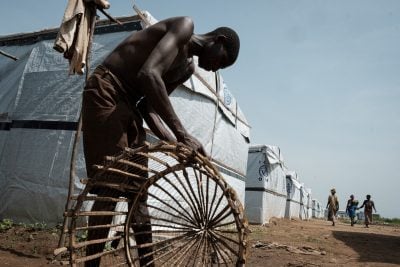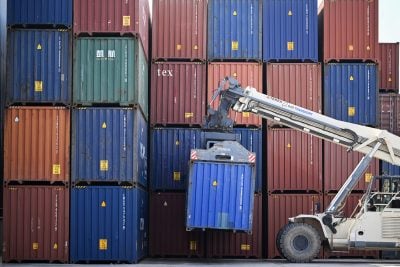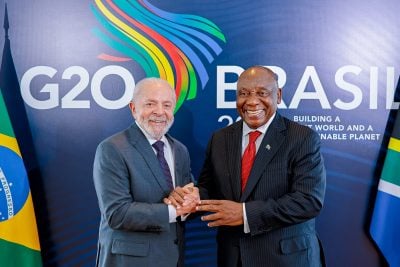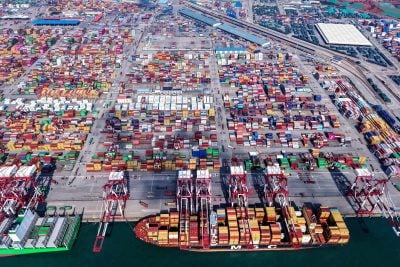João Lourenço’s presidency was hailed as a new dawn for Angola. The former defence minister promised to stop the rot in Africa’s second largest oil producer after 38 years of tightly controlled family rule under former strongman President José Eduardo dos Santos.
When he came to office in 2017, the president pledged to diversify the economy away from oil, increase foreign and domestic investment and champion private sector development. The pandemic has dealt these projects a significant setback, but the administration has managed to retain its shine.
“The government is on the right track and has a bright future ahead,” says Gonçalo Falcão, who heads the Angola practice of US law firm Mayer Brown. “Angola is going through a major economic transformation, in the sense of trying to finally open its economy totally to foreign investment in the quest for economic diversification, and an end to oil dependence.”
Since gaining power, Lourenço has made sweeping legal reforms to wean Angola off the dwindling yields of its oil industry. In a process that will take decades, the country has eased restrictions on foreign and domestic investment in strategic sectors such as mining and telecoms.
The age of reforms
A crucial part of the diversification agenda is the 2019-22 Privatisation Programme (PROPRIV), which plans to transfer more than 190 state companies and assets in sectors including mineral resources, transportation, telecommunications, health, agriculture and construction to the private sector.
The programme has developed slowly under the economic pressures of Covid-19 – plans for airline privatisations have been postponed for example – but the minerals processing sector is seeing renewed interest.
In 2019 the government released its first international public tender for rights to five mineral concessions in diamonds, phosphate and iron. By early 2020 Africa’s third largest diamond producer had pushed through a raft of new mining codes intended to peel away state intervention and promote transparency in the sector.
While major mining companies previously operated in the country, 27 years of civil war and the opacity of the dos Santos era deterred investment as companies held off from realising the full potential of their mining prospects, says Falcão.
Three new diamond cutting and polishing plants opened in 2020, with more plants expected to initiate operations, according to a report by Portugal’s Vieira de Almeida law firm.
Starting in 2018, a suite of reforms to the oil and gas sector’s tax laws have tempted international oil and gas companies to take a fresh look at Africa’s second-largest oil producer after Nigeria, says Falcão.
The reforms underpin a privatisation plan to kickstart the economy by selling off key state assets. The state is also privatising most of its public companies, including in the insurance, banking and oil sector in the hope of replacing revenues lost to moribund oil prices that account for 95% of exports and 70% of taxes.
So far 39 sales have taken place, according to Bloomberg. Among the initial plans was an initial public offering by Sonangol by 2022, and stake sales in more than 100 other enterprises, although Covid has complicated the outlook.
“The country is on a new transformation going from a highly dependent government-oriented country to an open economy in line with the most modern economies,” Falcão says.
Covid-19 blow worsens debt outlook
Yet low oil prices mean that the resources reform agenda is unlikely to see significant progress for some time. An oil price crash in April 2020 brought on by Covid-19 coincided with reports that oil majors operating in the country – including Chevron, ExxonMobil, BP and Eni – were halting exploration projects to focus on current production.
As the Covid crisis has worsened Angola’s economic fortunes, the country has struggled to service its colossal debts to China and commercial lenders, says Mark Bohlund, an economist at REDD Intelligence.
“The main reason for the poor state of the Angolan economy, which has been in recession for the last five years, is that oil prices have dropped and oil production is shrinking, but they still had to service these very large debt loads.”
The country owes $20.1bn to China, $14.7bn of which is owed to China Development Bank. This is more than any other African country owes and less than half of its external debt. Its other creditors include the IMF, who lent Angola a record $3.7bn in 2019, at interest rates higher than those owed to China, says Bohlund.
Angola has clawed back some “breathing space on a case by case” basis with Chinese lenders, says Angola’s finance minister Vera Daves de Sousa.
Chinese creditors have agreed to delay principal repayments until mid-2023, while the G20’s Debt Service Suspension Initiative (DSSI) has frozen payments until mid-2021. The government continues to depreciate the local currency, the kwanza, to squeeze out more from exports to service its debts, but that is causing rising inflation, says Bohlund.
“The IMF forecasts the currency to go from around 600 kwanzas to the dollar to 800, which will perpetuate the very high inflation at 25%. They’re one of the biggest food importers in sub-Saharan Africa, so a lot of food staples are imported. That’s hitting very large parts of the population who didn’t benefit from this oil boom.”
Challenges to anti-corruption agenda
With elections looming next year, the People’s Movement for the Liberation of Angola (MPLA), which has ruled since independence from Portugal in 1975, looks set to keep its hold on power despite the blow to living standards.
Yet the party has faced public anger in recent months. In October, citizens took to the streets following a blow to the credibility of the government’s high-profile anti-graft campaign, when Portuguese media reports accused the president’s chief of staff of profiting from multi-million dollar government tenders.
Not long after, the administration was hit by corruption allegations again as one of the president’s closest advisers was charged with misusing Sonangol funds to build a luxury real estate complex in the southern province of Benguela.
But as several oil majors resume drilling operations, and mining and refining projects get back on track, Angola’s longer-term prospects are starting to brighten again, says Falcão, who cautions patience.
“Investors are still treating Angola with a lot of interest. Things are starting to get back on track, and we’re starting to see a lot of investor interest again in Angola. The legal framework is more than ever investor friendly. It’s a combination of the world economy starting to recover, Angola being even more capable, and some African countries, not all of them, finally being seen as stable democracies. They are being seen as the next best thing after Asia. I have a very positive outlook, but these things don’t take place in a blink of an eye, they take time.”
Over the past few years Angola’s business environment has improved, but its ranking on the Ease of Doing Business Index has deteriorated, Bohlund warns.
“They’ve actually seen multiple improvements, especially in the control of corruption. But there’s still cases where politically connected people are winning these contracts and tenders. It hasn’t changed overnight since the dos Santos era, it’s just another set of politically connected people.”
Want to continue reading? Subscribe today.
You've read all your free articles for this month! Subscribe now to enjoy full access to our content.
Digital Monthly
£8.00 / month
Receive full unlimited access to our articles, opinions, podcasts and more.
Digital Yearly
£70.00 / year
Our best value offer - save £26 and gain access to all of our digital content for an entire year!
 Sign in with Google
Sign in with Google 



